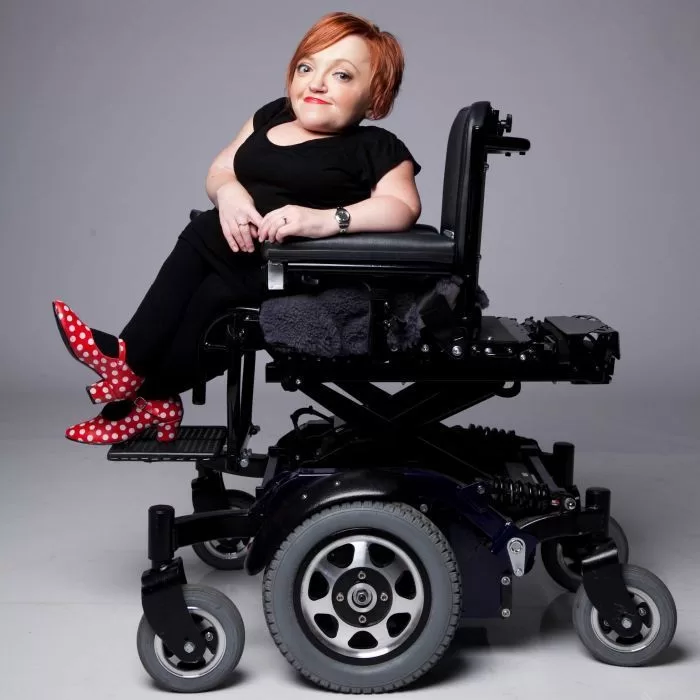Updated on August 20, 2024

Stuttering, a speech disorder marked by disruptions in speech fluidity, affects millions globally. Although often seen as a minor speech impediment, its impact runs deeper, significantly affecting communication, emotional health, and overall quality of life.
For those who stutter, these disruptions can lead to significant communication challenges, impacting their social interactions, educational experiences, and professional opportunities. The question of whether stuttering is considered a disability is complex and multi-faceted, involving legal, medical, and social perspectives, and it is often considered a hidden disability.
Here we will discuss these perspectives to understand whether stuttering is classified as a disability and its implications.
What is Stuttering?
From a medical and psychological standpoint, stuttering is classified as a neurodevelopmental disorder that typically begins in early childhood. The exact cause of stuttering remains unknown, though it is believed to involve a combination of genetic, neurological, and environmental factors.
There are two primary types of stuttering: developmental stuttering, which is most common and often begins in childhood, and acquired stuttering, which can occur later in life due to brain injury or severe psychological trauma.
The prevalence of stuttering varies across populations, but it is estimated to affect approximately 1% of the adult population. It often emerges during childhood, with some experiencing spontaneous recovery while others continue to stutter into adulthood.
Stuttering affects approximately 1% of the global population, with about 5% of children experiencing stuttering at some point in their development. While many children outgrow stuttering, for about 1% of the population, it persists into adulthood. Stuttering is more common in men than women, with a ratio of about 4:1.
Legal and Medical Definitions of Disability
According to the World Health Organisation and the Australian Human Rights Commission, stuttering is a disability.
From a medical perspective, stuttering can be classified as a disability when it significantly impairs an individual’s ability to communicate effectively, which can affect their daily life.
The impact of stuttering varies widely among people. For some, stuttering is a mild inconvenience, while for others, it can be a source of severe anxiety and a barrier to personal development.
Stuttering as an Invisible Disability
An invisible disability is a condition that significantly impairs an individual’s daily life but is not immediately apparent to others. Unlike visible disabilities, such as those requiring the use of a wheelchair or a cane, invisible disabilities do not manifest through obvious physical signs.
Invisible disabilities often present unique challenges because they are not immediately recognised by others, which can lead to misunderstandings, lack of accommodations, and even scepticism about the legitimacy of the condition.
Stuttering fits the criteria of an invisible disability because, on the surface, people who stutter may appear to function like anyone else. The physical signs of stuttering—such as repetitions, prolongations, or blocks in speech—only become evident when the person speaks. When they are not talking or using alternative communication methods, their stuttering is not visible or noticeable.
Scenarios Where Stammering Can Be Considered a Disability
Stuttering is recognised as a disability in several scenarios:
- Job Interviews: Individuals who stutter may encounter difficulties articulating responses smoothly during interviews, especially in high-stress environments where fluency issues can be more pronounced.
- Academic Settings: Students who stutter might struggle with oral presentations or participating in class discussions, which can negatively affect their academic performance and engagement.
- Workplace Communication: Employees who stutter may find it challenging to communicate effectively during meetings, phone calls, or presentations, potentially impacting their job performance and interactions with colleagues.
In these situations, stuttering is more than just a minor inconvenience—it poses a significant barrier to effective communication and participation. Recognizing stuttering as a disability ensures that individuals receive the necessary support and accommodations, such as extra time for presentations, alternative communication methods, or access to speech therapy services.
Can Stuttering be Cured?
There is no known cure for stuttering. Like other speech disorders, it requires ongoing therapy and practice to manage or improve. While some individuals report that their stuttering suddenly “disappears,” most adults who stutter will continue to experience it throughout their lives.
While there is no cure to eliminate stuttering, there are practical tools that can help manage it. Working with a speech-language therapist who specialises in stuttering can be a way forward to improving both communication skills and confidence for those who stutter.
Implications for Stuttering as a Disability
One of the strongest arguments for considering stuttering as a disability is its potential impact on employment and education. Individuals who stutter may find it difficult to secure jobs or advance in their careers due to biases against their speech. In educational settings, students who stutter may avoid participating in class discussions or oral presentations, leading to missed opportunities for learning and development.
The psychological impact of stuttering also supports its classification as a disability. Many people who stutter experience anxiety, depression, and low self-esteem, particularly when their stuttering is severe. These mental health challenges can further limit their ability to engage fully in social and professional life.
Stuttering is undeniably a disability because it significantly impacts communication, a fundamental life activity. While people’s experiences with stuttering vary, the condition often presents significant challenges that require understanding, support, and accommodation.
While stuttering can meet the criteria for disability under certain legal and medical frameworks, its impact varies widely among individuals. For some, stuttering is a significant barrier that warrants accommodations and support; for others, it is a challenge to manage effectively without needing the disability label.
By recognising stuttering as a disability, we can foster a more inclusive society where people who stutter are encouraged to reach their full potential. Ultimately, whether stuttering is considered a disability may be less important than ensuring that those who stutter are understood, supported, and empowered to live full and successful lives. As society continues to evolve in its understanding of stuttering, ongoing advocacy, and awareness efforts are essential to fostering a more inclusive and supportive environment for all.
Looking for reliable and trustworthy care services?
At Centre Disability Support, we offer tailored support services for individuals with disabilities throughout Australia. We offer housing options in Logan, Ipswich and Brisbane areas, where we provide independent supported living or assist individuals in finding suitable options for individualised living.
Additionally, we provide day-to-day support for individuals with mental health issues, complex behaviour and other types of disabilities. We also have support coordinators available to assist with planning and navigating NDIS plans and offer casework support.
Whether you’re seeking support for yourself, a loved one, or simply wish to learn more about our services, we’re here to help.
MORE FROM CENTRE DISABILITY SUPPORT
Is Dementia A Disability In Australia?
Is Endometriosis a Disability in Australia?
Is Bipolar Disorder a Disability?
IS FIBROMYALGIA A DISABILITY IN AUSTRALIA?
IS AUTISM A DISABILITY IN AUSTRALIA?



